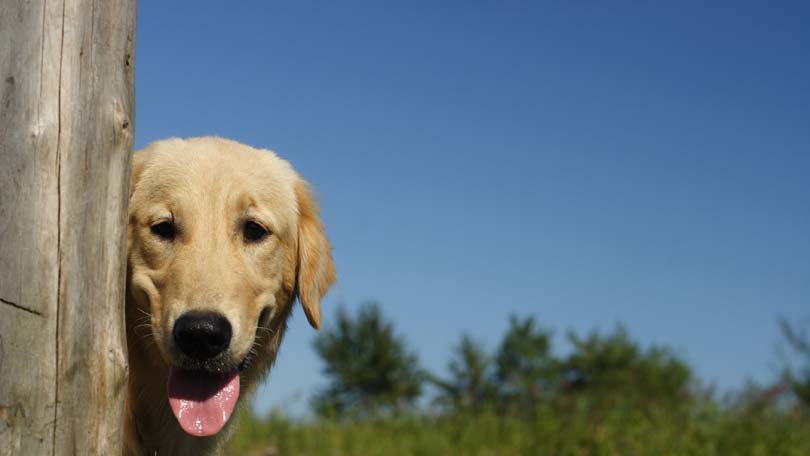
Your new puppy is the apple of your eye! Sweet, cuddly, intelligent – everything you ever wanted in a dog. Then you see her eat her own stool and suddenly you wonder what you have done to deserve such a dirty little demon!
Coprophagia or stool eating is perfectly normal for dogs. Bitches eat the stool and urine of their puppies to keep them, and their bedding, clean so predators cannot sniff the litter out. Wild dogs will eat feces when food is scarce and dogs suffering from digestion problems will often ‘recycle’ their dinner as a way of ingesting nutrients their bodies missed the first time through.
This does not help you to get over the shock and disgust the first time you witness their happy little feast. It is most common in puppies and it can help if you think of it as just another way of them exploring their world. Most grow out of the habit, much to their owner’s appreciation.
Adult dogs will partake in their own form of pooper scooping for a variety of reasons. The most common is their digestive system is not working sufficiently and not enough nutrients are absorbed the first time the food went through. If you feel this may be the problem or if other symptoms are present such as weight loss or lethargy, a visit to the vet is required. Sometimes medication is blocking nutrients or a lack of digestive enzymes in the system.
Other common reasons are hunger and boredom. Dogs that are on a restrictive diet for weight loss will look to their feces to fill the void and if a dog is left alone in the yard where there are feces, he may eat them because they were there. Both reasons are easily prevented by regularly scooping the yard (twice a day almost guarantees that coprophagia is not part of your dog’s daily routine).
There are several ways to prevent coprophagia. Punishment does not work and for a dog that is missing nutrients in their diet, aversion training does not work either, it only makes them sneak a snack when you are not looking. Adding pineapple or pumpkin to the dog’s diet changes the consistency of the stool, making it less attractive. Pineapple also contains a high level of digestive enzymes that may help the dog’s ability to absorb nutrients, addressing the problem from two angles.
There are commercial products on the market that will change the flavor of the feces to make it less agreeable. ‘Forbid’ is one such product and many owners swear by it, while some have not found much of a decrease in coprophagia episodes in their pets. Ask your vet which product he prefers as there are many on the market.
The common tricks like putting lemon juice or hot pepper on the poop does not work and if you are going to go to that much trouble, why not just scoop the yard?
Food quality and ingredients play an integral part of nutrient absorption. Try feeding smaller meals more frequently and look into the quality of the food – the higher the quality of the kibble, the easier it is for the nutrients to be absorbed and less poop produced for snacking. Dog food manufacturers rate the digestibility of their products and often post the information on their websites. If you cannot find it, send them an email or call them for the information.
Unfortunately, there is no magic formula for stopping your dog from enjoying his recycling behavior. Diligence, patience and keeping the yard clean are the main ways to combat coprophagia, at least until the pup outgrows the habit.
